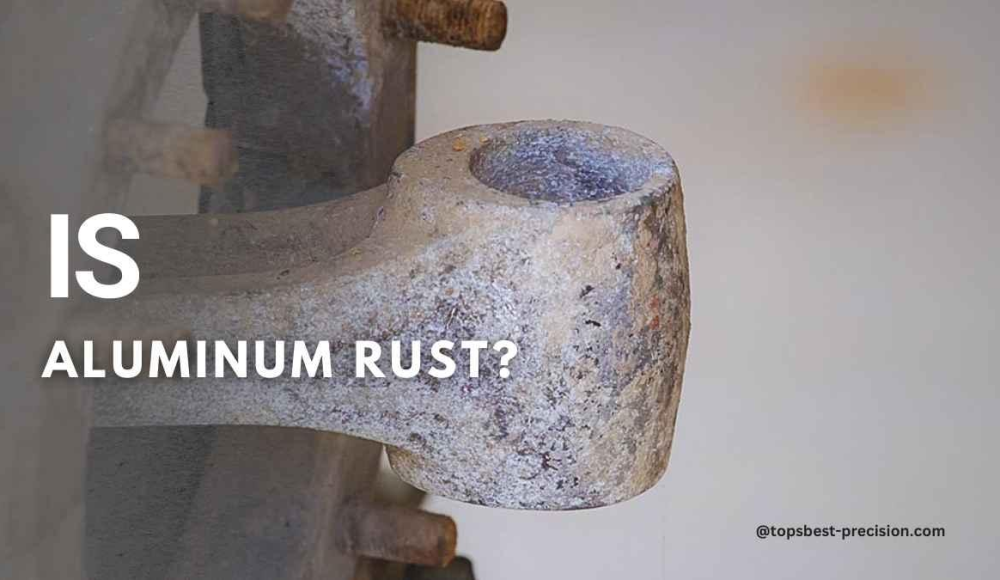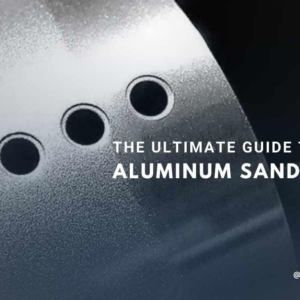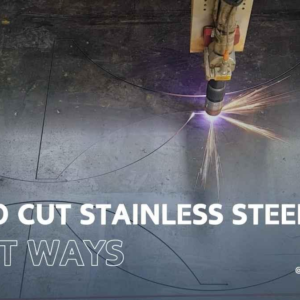O alumínio não enferruja como o aço ou o ferro. Em vez de enferrujar, o alumínio forma uma camada protetora de óxido quando exposto ao ar. Este revestimento de óxido evita mais corrosão e protege o metal por baixo. Ao contrário da ferrugem, que flaga e expõe mais do metal, A camada de óxido no alumínio permanece intacta, oferecendo proteção duradoura. No entanto, O alumínio ainda pode corroer em determinadas condições, especialmente em ambientes salgados ou ácidos, Mas não enferrujará no sentido tradicional. Este guia é sobre ferrugem e fatos de alumínio.
Por que escolher o alumínio para o seu projeto?
Alumínio oferece inúmeras vantagens, tornando -o uma das principais opções para muitos projetos. É leve, mas forte, oferecendo grande durabilidade sem adicionar peso desnecessário. Sua resistência natural à corrosão o torna perfeito para ambientes externos e marinhos.
O alumínio também é altamente maleável, permitindo fácil personalização em formas complexas. É um material econômico, muitas vezes mais acessível que aço inoxidável, especialmente para aplicações leves. Mais, alumínio é 100% reciclável, tornando -o uma opção ecológica. Se você precisa de algo leve, durável, ou resistente à corrosão, O alumínio é uma excelente escolha de material para o seu projeto.
Prevenção de corrosão de alumínio
Você pode impedir que o alumínio enferrujasse, empregando as seguintes estratégias:
Use revestimentos de proteção
Os revestimentos são fundamentais para evitar a corrosão. Em particular, A anodização faz com que a camada de óxido natural de alumínio mais espessa com uma barreira forte. Avançar, O revestimento em pó como acabamento é proteção adicional. Ambas as opções ajudam a aumentar a vida útil do alumínio, protegendo -o de fatores como umidade, sujeira, e condições climáticas extremas.
Limpeza Regular
A limpeza regular deve ser feita para manter o alumínio livre de corrosão. A sujeira, Óleos, e quaisquer contaminantes na superfície podem acelerar o processo de corrosão. As peças de alumínio devem ser limpas usando detergente e água leves para remover os detritos. Finalmente, Para superfícies limpas higienicamente, É imperativo remover qualquer umidade que sobra. Porque isso pode levar a uma deterioração adicional das superfícies.
Empregar ligas resistentes à corrosão
A série de alumínio 5000 e 6000 são altamente resistentes à corrosão, e ideal onde os ambientes são úmidos ou industriais. Estes envolvem uma porcentagem de magnésio ou zinco mais alta para ter melhores propriedades de antioxidação. Portanto, Uma seleção de liga de alumínio apropriada pode percorrer um longo caminho para reduzir e eliminar a taxa de decaimento do alumínio.
Aplicar cera ou selantes
Proteção adicional pode ser retirada aplicando cera ou selante. Esses produtos não permitem umidade e contaminantes se acumulam na superfície. Cera ou selante precisa ser reaplicado ao longo do tempo. Além disso, estes têm uma superfície brilhante brilhante, Fazer o alumínio parecer melhor, além de dar um escudo adicional contra condições adversas.
Armazenamento adequado
Os produtos de alumínio devem ser armazenados em locais onde não serão expostos a condições úmidas também podem ser adequadamente aeradas. Como a umidade é a principal causa de corrosão. Juntamente com a proteção de peças de alumínio de contaminantes, Usar plástico protetor para cobrir pode ser eficaz para armazenamento de longo prazo.
Evite o contato com a água salgada
A água salgada afeta negativamente o alumínio, pois é altamente corrosivo, tornando o metal oxidado rapidamente. Se o alumínio tocar água salgada, Lave -o com água fresca em breve para evitar enfiar sal na superfície de alumínio. Em aplicações marítimas, É possível usar revestimentos especializados que adicionem uma proteção ainda extra contra os efeitos corrosivos da água salgada.
Use ânodos de sacrifício
Ânodos de sacrifício funcionam corrondo em preferência ao alumínio real. Esses ânodos são projetados a partir de metais reativos, como zinco. No processo, Os ânodos vão corroer em vez de alumínio. No entanto, ânodos de sacrifício devem ser verificados e substituídos com frequência para continuar protegendo as estruturas metálicas.
Garanta ventilação adequada
É importante ser importante para evitar o acúmulo de umidade em alumínio. Sem circulação de ar adequada, formas de condensação em superfícies de alumínio. Além disso, As peças de alumínio devem ser armazenadas em uma área bem-enajeira para permitir a circulação livre de ar.
Impedir a corrosão galvânica
Existem duas formas de corrosão galvânica, onde o alumínio entra em contato com metais mais reativos do que ele, como cobre ou aço. Para evitar tal ocorrência, empregar isolamentos, revestimentos, e juntas entre alumínio e outros materiais. Verifique os locais onde é provável que dois metais diferentes entrem em contato para impedir o desenvolvimento de corrosão galvânica.
Inspeções regulares
A corrosão pode ser abordada através de verificações frequentes para que seu início seja detectado o mais rápido possível. Isso inclui mudanças de cores, Pitting, ou descamação nas superfícies dos produtos de alumínio. Se você encontrar algum sinal de corrosão, Então, melhor, É fácil de reparar como antes. Use métodos de teste ultrassônico para garantir que suas peças de alumínio não sejam danificadas de forma alguma.
Diferença entre aço & Ferrugem de alumínio
Aço e ferrugem de alumínio de maneiras muito diferentes. Quando enferrujas de aço, forma óxido de ferro, um macio, substância de cor vermelha. À medida que a ferrugem cresce, Ele se expande e flocos, expondo mais do aço subjacente ao ar. Este processo continua até que todo o metal seja consumido pela ferrugem. Ao longo do tempo, Isso leva ao enfraquecimento do aço e à eventual falha estrutural.
Alumínio, por outro lado, forma óxido de alumínio quando oxida. O óxido de alumínio é uma substância muito mais difícil em comparação com o óxido de ferro. Em vez de desbafar, O óxido de alumínio forma um fino, camada de proteção sobre o metal. Esta camada impede a corrosão adicional e interrompe o processo de ferrugem. Como resultado, A ferrugem de alumínio não continua a se espalhar ou degradar o material, como a ferrugem de aço.
A principal diferença é que o óxido de alumínio não danifica o metal; isso protege. Também é importante observar que o óxido de alumínio geralmente é uma cor acinzentada, misturando com a aparência natural do alumínio.
Resumo
O alumínio não enferruja como aço. Em vez de, forma uma camada de óxido protetor quando exposto ao ar, prevenindo mais corrosão. Ao contrário do óxido de ferro (ferrugem), que se desligam e se espalham, O óxido de alumínio permanece intacto, preservando a força do metal. Enquanto o alumínio pode mudar na aparência, permanece protegido e durável.
Se você precisar de serviços de alumínio confiáveis, Tops de contato Melhor precisão. Nossa equipe de especialistas garante soluções de alta qualidade para seus projetos de alumínio. Estenda a mão hoje para começar!
Perguntas frequentes
1º trimestre. Como a corrosão de alumínio difere da ferrugem de aço?
O alumínio forma uma dura camada de óxido protetor que interrompe mais a corrosão, Enquanto a ferrugem de aço continua a se espalhar e enfraquecer o metal enquanto ele se apóia.
2º trimestre. A ferrugem de alumínio em ambientes de água salgada?
O alumínio não enferruja como aço, Mas pode corroer a água salgada. A camada de óxido de alumínio pode ser danificada pela exposição prolongada ao sal, É por isso que os revestimentos de proteção são recomendados para ambientes marítimos.
3º trimestre. Como posso proteger o alumínio da corrosão?
Use anodização, revestimento em pó, ou ânodos de sacrifício para proteger o alumínio da corrosão. A limpeza regular e o armazenamento adequado também ajudam a manter sua integridade.
4º trimestre. Por que o óxido de alumínio não floce como óxido de ferro?
Óxido de alumínio é difícil, camada densa que se liga fortemente à superfície do metal. Ao contrário do óxido de ferro, que flaga e expõe mais do metal, O óxido de alumínio forma uma barreira contínua que impede a oxidação adicional.




1 pensei em “É ferrugem de alumínio? Um guia rápido”